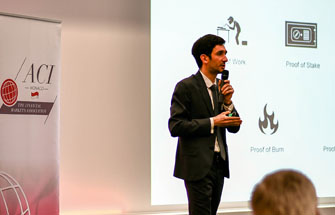Remember that 27 years ago, ACI Monaco (Association des Cambistes Internationaux – The Financial Markets Association) began its training programme, a pillar of its values. Meet Mr. Robert Laure, the association’s president.
ACI and training, an old story…
Indeed, we are highly active in this area. There are over 600 participants in our ACI training operations this year, with a very diverse audience: finance professionals of course, but also service activity professionals (management companies, lawyers, accountants, financial management consultants etc.), as well as many students.
So, does the training offering by entities such as Thomson Reuters demonstrate the usefulness and seriousness of this training?
Indeed, we were proud and very pleased when the finance news agency Thomson Reuters offered to be involved in one of our training sessions. That legitimises our operation in a way. Especially as over 150 people responded - both professionals and laymen. The subject was topical: how to grasp the opportunities given by the new Blockchain technologies, their potential applications, and the changes generated in the world of finance. Such topics, raised by renowned partners, bring a dimension of modernism to our operation.
Indeed, it is a modern topic, but it can create controversy…
The Bank of France dedicated a presentation of Bitcoin in their Focus n°16 of 5 March 2018. In particular, it states that on 7 February, French and German economy and finance ministers and central bankers requested the G20 to address this issue. So we cannot ignore it.
Thanks to Blockchain, the Bank of France has set up a processing device for direct debit management, to render direct debits secure and faster.
More generally I would define the Blockchain as a mechanism for managing a contractual relationship between two economic agents, which allows:
- an indelible record
- faster execution
We are in the context of real substitution of the trusted third party here.
The virtual contract managing the contractual relationship is indelible, therefore it is opposable.
Essentially, at every transaction an indelible code is created with a hashtag which is an alphanumeric code. The number of combinations makes this code infinite – and inviolable, to date.
Who do you believe are – and will be – the users of this technology?
I think that two types of technology will emerge:
- there will be public Blockchain technology, open and accessible to all. It will guarantee inviolability, and thus security, as everyone will use it.
- and there will be private Blockchain technology, owned by a group.
After the emergence of the public blockchain as a cryptographic means, what will be the developments in the context of more private use? This question remains.
As for cryptocurrency, it is a transmission tool but not a value determination tool. It has a potential role as a disruptive means of exchange.
On the regulatory aspects, it should be noted that the various financial market supervisory bodies and state and supranational organisations are paying close attention to the operation of these still-emerging mechanisms.
To conclude, whatever everyone believes, this session will have aroused the audience’s curiosity and heightened awareness, including on the ecological aspects of highly energy extravagant Blockchain technology!






